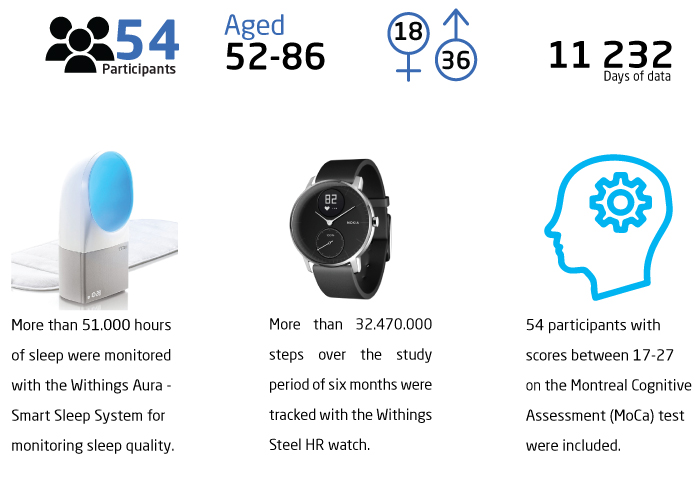Physical activity, sleep and cognitive function: Clinical pilot study on crowd-sourced mHealth for cognitive rehabilitation
A team formed by Post-Doc François Patou and Professor Anja Maier from the Engineering Systems Division at the Technical University of Denmark, advised by Leading Neuropsychologist Hysse Forchhammer, Rigshospitalet-Glostrup, just completed a clinical research pilot study participating in the Stanford Medicine X / Withings Precision Research Challenge. The prestigious competition aimed to explore how the use of pervasive home- and wearable technology can generate new medical knowledge and potentially support people suffering from a variety of chronic diseases.
The DTU team made it to the finals of the competition, together with distinguished medical research institutions, including The Johns Hopkins Hospital and Boston Children Hospital. The DTU-team proposed using Nokia wearable products (previously Withings Inc.) to help better understand Mild Cognitive Impairment, a condition that can be a precursor to various forms of dementia. Over a duration of six months, the team conducted a pilot clinical study with more than 50 participants with self-reported signs of memory loss or other symptoms of cognitive impairment. Participants wore the trendy Nokia Steel HR smartwatch and had a sleep tracker under their mattress throughout the duration of the study.
Patou, Maier and their collaborators thus intended to assess the feasibility of a study like this one that is aimed better to understand how sleep, physical activity and the evolution of cognitive function are associated. The research team recorded a total of more than 11.000 days of data, including 51.000 hours of sleep and 32.400.000 footsteps.
Preliminary findings from the study includes the significant association between baseline levels of physical activity and tests scores on the Montreal-Cognitive Assessment (MoCA) test. The team now intends to leverage these findings to design and implement new strategies that support prevention and help mitigate cognitive decline.
